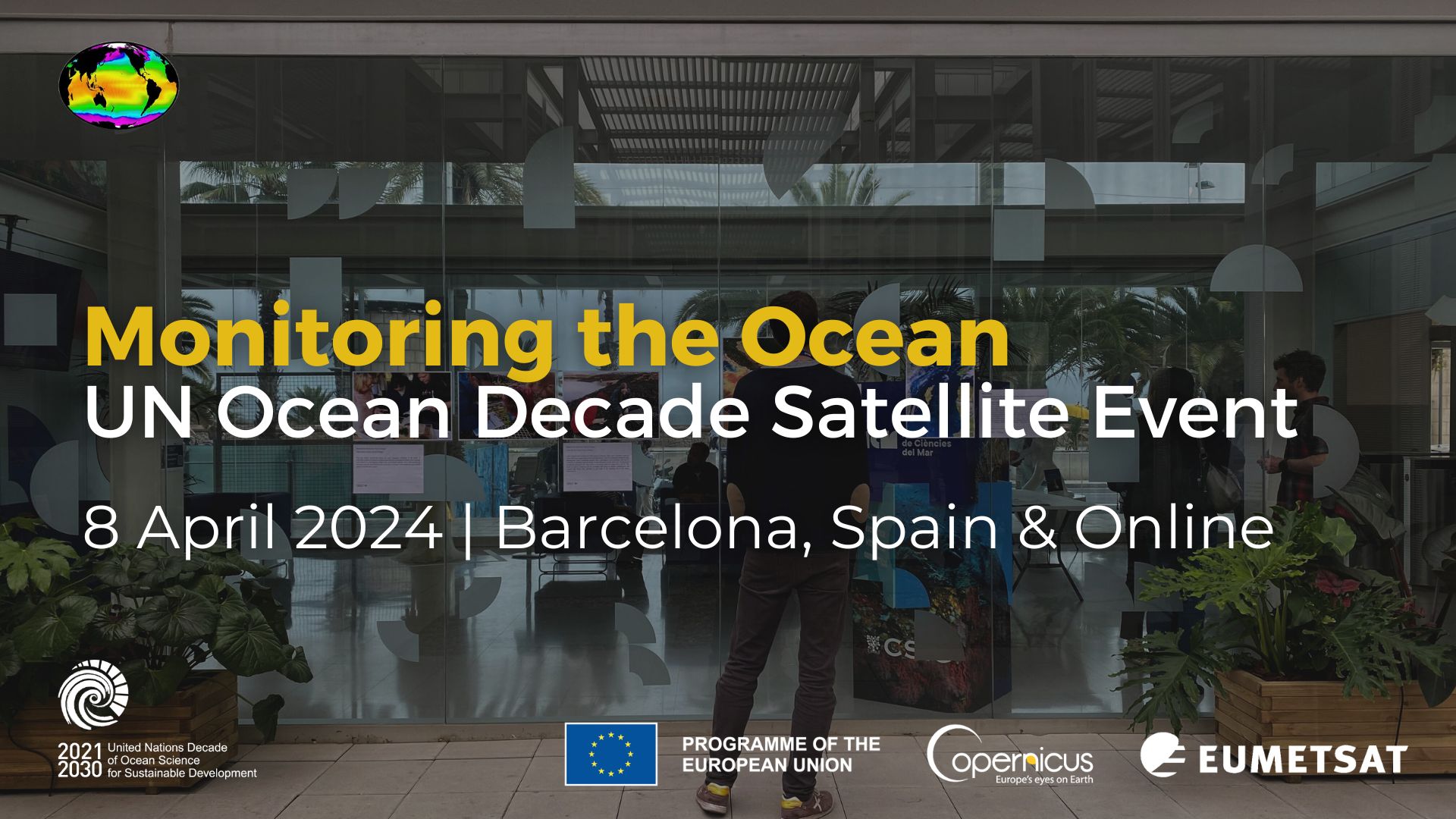8 April 2024, Barcelona, ICM – Institute of Marine Sciences
As part of the Ocean Decade Week, GHRSST co-organised the Satellite Event, Monitoring the Ocean. The event brought experts from marine and climate sciences to unpack the importance of monitoring the ocean from satellites to in situ observations for predicting changes in the Earth system and climate.
The event brought together multiple projects and initiatives alongside GHRSST as well as diverse experts ranging from remote sensing, oceanography, to high performance computing.
The objective of the satellite event was two-fold:
- Draw the attention of the policymakers to the need of high-resolution satellite observations and continued in situ observations for monitoring the ocean health and its impact on the Earth system, by inviting them to join a panel discussion of experts coming from different areas of the climate and marine science
- Raise the awareness of the general public on the challenges and costs of the fieldwork for extracting data from ice, from the ocean, from the atmosphere, in digesting data, and feeding data into climate models, to ensure that data can be ingested and used for predictions and weather forecasts
Monitoring the Ocean
The event consisted of two parts: an expert panel discussion and an exhibition of behind the scenes of monitoring the ocean. GHRSST Science Team Member, Cristina González Haro opened up the event with an introduction of ocean monitoring from satellites to buoys.
Download Cristina’s presentation from the GHRSST Zenodo Community here.
Panelists
The panel was moderated by Cristina González Haro (ICM-CSIC, Teledetect, GHRSST, ICATMAR). The panel included the following talks and experts:
ESA Earth Observation for Ocean Sciences and Climate by Roberto Sabia (European Space Agency – ESA)
Complementarity of ocean observations (in situ) for monitoring the ocean from the ocean? by Chiara Bearzotti (OCEAN:ICE, ObsSea4Clim, Danish Meteorological Institute)
Improving the predictability of climate tipping points, ENSO prediction and disease models with an enhanced ocean-observing system by Xavier Rodo (ISGlobal, TipESM)
How can supercomputers aid in modeling and what are the current and future challenges of HPC for weather, ocean, and climate, supported by ESiWACE? by Mario Acosta (Barcelona Supercomputing Center – BSC)
Monitoring the ocean, a regional perspective from Catalonia by Jordi Isern Fontanet (ICM-CSIC, ICATMAR)
From Climate Science to Decision-making: how policymakers and final users can benefit from research outcomes by Ana Oliveira (+Atlantic, ObsSea4Clim, GHRSST)
Watch the talks on our playlist here.
Explore the Exhibition
Following the panel discussion, the Satellite Event concluded with an exhibition on Behind the Scenes from Monitoring the Ocean.
Check out the Exhibition here.
Priority Messages
From the event’s panel discussion emerged the following priority outcomes on main challenges in Monitoring the Ocean:
- The lack of an unified and integrated observing network including remote sensing and in situ observations
- International cooperation needed
- Lack of observations especially critical in strategic regions like the polar regions
- Limits the ability to mitigate the effects and long-term implications of climate change
- The accessibility and standardisation of data
- Need for agreed framework for harmonised data and the enhancement of data interoperability and accessibility under FAIR framework across countries
- Long-term funding to support knowledge-based decision-making
- Essential for monitoring key climate and ocean variables
- Need for computational resources in connection with increasing complexity of ocean and climate models and simulations
- Need for continued funding to keep datasets up to date
- Polar regions are particularly under-observed and need more attention
- Need to improve synergies across all scales and entire ocean communities
Stay tuned for a full report.



